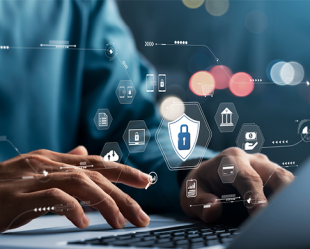For more than a century, March 8th has become synonymous with International Women’s Day. This year, to mark the date, the UN have chosen the theme, “Women in leadership: Achieving an equal future in a COVID-19 world.” It celebrates the tremendous efforts of women and girls worldwide who have, despite the destruction of the pandemic, promoted equality and recovery in their work.
Geraldine Larkin, Chief Executive at NSAI said, “According to the UN, “When women lead, we see positive results”. After a year filled with great political change and a devastating health crisis, here at NSAI, we see much truth in that statement. As an organisation with many female leaders throughout its divisions, we have seen women’s full and effective participation and leadership driving progress and diversity of thinking, as is intended in Goal 5, “Gender Equality” of the Sustainable Development Goals.”
Gender Responsive Standards
When considering Goal 5 of the Sustainable Development Goals, we are frequently faced with the question, “How will we help forge a gender equal world?” As Ireland’s official Standards body, NSAI’s answer to this question is clear: To make Standards work for women. In 2019, the organisation signed up to International Organization for Standardization’s (ISO) Gender Action Plan as a commitment to make gender-equal Standards a reality.
Gender-inclusive Standardization is also a key priority at European level, being led by the European Committee for Standardization (CEN-CENELEC) Gender Action Plan. On March 10th, CEN-CENELEC will be highlighting the importance of these projects at their 10-10 Webinar series. You can find out more about the event here.
A Workshop Agreement for Women’s Entrepreneurship
Fitting well with the theme of “Women in Leadership”, today, ISO launch the International Workshop Agreement (IWA) 34, on “Women’s entrepreneurship – Key definitions and general criteria”. The purpose of this IWA is to provide a definition of a woman‐owned business and guidance to businesses, statistical agencies, governments, and international initiatives on how the definition can be used. Over time, it is hoped that the document will facilitate the collection of internationally comparable data on women’s entrepreneurship and leadership in business, and its resultant impact on local and national economies.
Wishing our committee members, clients and colleagues a wonderful International Women’s Day 2021.
[Disclaimer: All reasonable effort was made to ensure that the information on this page was correct at the time of publication. Any views or opinions expressed on this page are not necessarily those of NSAI. NSAI accepts no responsibility or liability howsoever arising from the contents of this publication or any errors, inaccuracies, or omissions in the contents of the information provided therein.]



